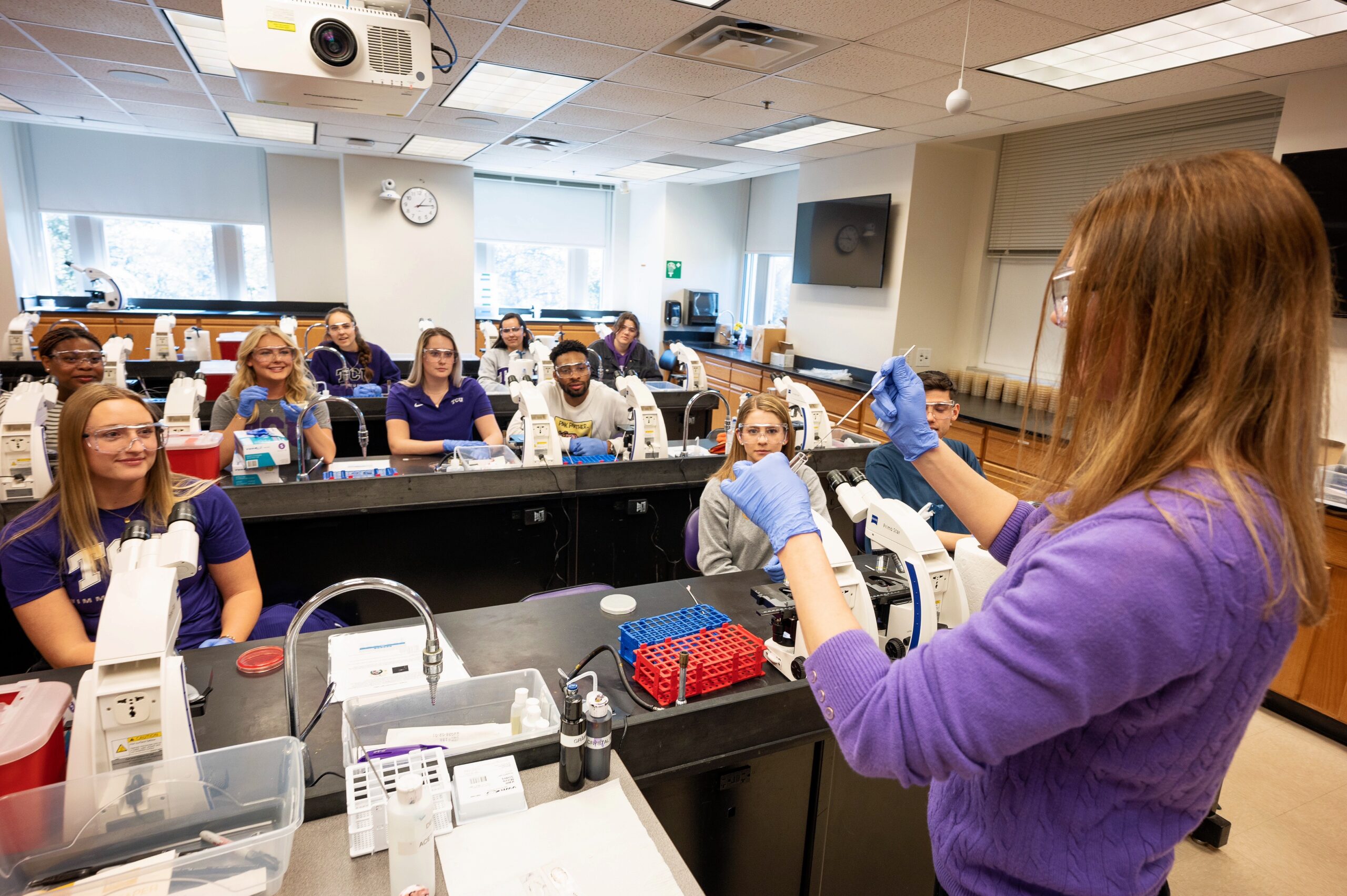Pre-Health Curriculum

Pre-Health at TCU is a career track, not a major. Although most Pre-Health students major in Biology, Chemistry, or Neuroscience, some students’ major outside of the sciences and take pre-requisite courses as elective hours for admission to a professional school. Thus, the incoming student has the opportunity to explore many career options as well as prepare for admission to post-baccalaureate programs. Click here to learn more about majors commonly selected by Pre-Health students.
Please note: Nursing students are not often in Pre-Health because the alignment does not work from both a curriculum and professional advising perspective. The Nursing program at TCU is a well-structured, with a prescribed sequence of courses that does not typically allow for additional pre-health courses.
TCU Pre-Health offers the following career tracks:
Pre-Medicine, Pre-Dentistry, Pre-Physician Assistant/Associate, Pre-Veterinary, Pre-Optometry, Pre-Pharmacy, Pre-Certified Anesthesiologist Assistant, Pre-Genetic Counseling, and Pre-Podiatry.
Below are some optional pathways students take to complete their Pre-Health coursework. The ideal path will vary based on your individual goals, academic major, and timeline. We encourage you to meet with a Pre-Health advisor to create a personalized plan that fits your needs. If you are a current student with questions, click here to meet with an HPAC Advisor. If you are a prospective student, click here to schedule a visit with the Pre-Health Institute.
Click on a track to learn more about recommended courses and sequencing:
Academic pre-requisites for admission to Professional School
Most professional programs require at least two years of coursework in Biology and Chemistry, a year of Physics and some coursework in Psychology or Sociology, Math and English. TCU has excellent science departments that offer cutting edge courses in most areas of biology, chemistry, neuroscience and physics. The TCU core curriculum requirements expose students to courses in the humanities and social sciences – disciplines valued by professional schools. In addition, we offer a growing number of course offerings in the medical humanities including: visual culture and medicine, religion and healthcare, and bioethics.
Other requirements for admission to Professional School
In addition to course work, professional programs expect students to develop a deep understanding of their chosen field, demonstrate their commitment to serving others and participate in activities that illustrate proficiency in a variety of intra- and interpersonal skills, like team work and oral communication. An understanding of health careers can be achieved by observing health care professionals or working in a clinical setting. Students demonstrate their willingness to serve others by sustained participation in altruistic activities. The Pre-Health Institute is well connected to the local health care community and can help students find ways of gaining clinical experience. Click here to learn more about our clinical observation program. The TCU campus provides ample opportunities for students to become involved in service and extracurricular activities. Click here to learn more about some of the service opportunities available at TCU.